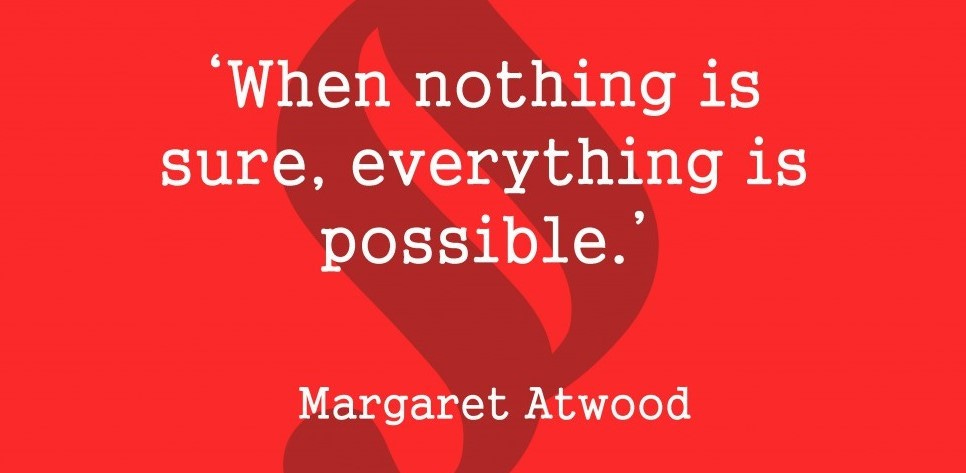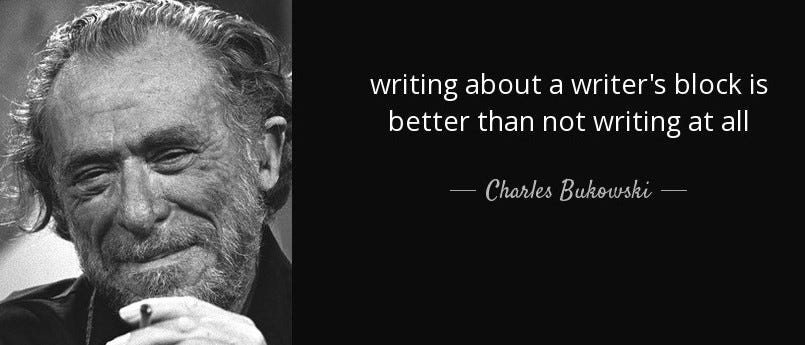The writer's block phantom
Does writer’s block exist? No. Are there plenty of writers who believe it does? Yes. Are they completely off? Well, not entirely.
As an experienced screenwriter, you have a handle on your craft. You trust your writing muscle, you trust your instincts. You have that confidence because you’ve been commissioned before, you’ve jumped every hurdle, you’ve fought every battle, you’ve crawled through the foulest mud of development hell and you’ve made it through alive, stronger - and, ideally, produced.
“Writer’s block for me is a question I haven’t solved yet—Why is Martin doing this? What happens after they meet? What the hell is going on in this scene? It’s a question I haven’t answered yet, but I trust that in 2 hours, 2 days, or 2 months I will eventually answer it. Maybe I have to keep writing and come back to that part of the story later. Maybe I have to do some more research. Maybe it’ll come to me in the shower. But eventually I’ll figure it out.” (Colson Whitehead)
Take the example of a marathon runner (and we all know that the marathon analogy fits writing like a glove, don’t we?): The runner knows he’s done the e.g. New York marathon - he knows he has what it takes. He keeps in shape and, by doing so, can feel confident about making it through the next marathon in one piece, too. Same with scripts, same with us - we’ve done it before, we can do it again.
Writer’s block, to me, does not exist. A period of non-writing is a period when I instinctively know that I’m not supposed to write. When it feels right, I write. If I feel like writing crap, I write crap. And if I don’t feel like writing at all, well then I’ll happily be the world-class procrastinator I love being. Basically, the trick is not to worry. Trust yourself, trust your writing muscle. Because, heck, we all know how it works - while we walk the dog, while we dust the action figures, while we re-sort our treasured vinyls collection - our writer’s brain is nicely at work - things are-a-happening. All part of the process.
“I disavow that term. There are times when you don’t know what you’re doing or when you don’t have access to the language or the event. So if you’re sensitive, you can’t do it. When I wrote Beloved, I thought about it for three years. I started writing the manuscript after thinking about it, and getting to know the people and getting over the fear of entering that arena, and it took me three more years to write it. But those other three years I was still at work, though I hadn’t put a word down.” (Toni Morrison)
But what about beginning writers, you might ask? What happens if you don’t have the body of work to give you confidence? Well, the answer is in the very act of writing. That’s what’ll get you there - write, write, write! The more you write, the more you work your writing muscle, the more you learn to understand and use it. Remember the marathon runner? He knows exactly when to slow down and when to haul ass. And should you, somewhere along the way, feel that you’ve just been attacked by the dreaded writer’s block phantom - just remember that it - does - not - exist. What exists is your writing muscle - it wants to and needs to grow - so work the damn thing and before you know it, you’ll be able trust it.
There’s something I think of as “the myth of the author.” There’s sort of this folk belief in the magical nature of the profession of writing. And I like to do what I can do dispel it, when I get a chance. You all know about the muse, right? We writers, we have a muse, and the muse bestows the writing onto us, and we become inspired—oh, I am filled with writer magic, and then I turn that into a book. And it’s a cool idea, it’s very romantic. But it leads to some really unhelpful thinking in the long run. For example, who’s heard of writer’s block? I really don’t think it exists. Actually, no, sorry, I’m going to take that back: it does not exist. We’ll state it flatly. Sometimes, writing is super hard. Just like any other job. Or, if it’s not your job, sometimes it’s hard to do a thing even if it is your hobby. But no plumber ever gets to call in to work, and they’re like “Jake, I have plumber’s block,” you know? What would your boss say?! I have teacher’s block. I have accounting block. They would say “You are fired! You have problems and you are fired. Get your ass in here and plumb some stuff, Jerry!” (Patrick Rothfuss)
For even more on the subject: I’ve just come across a good post by John Scalzi, entitled “Why I’m (probably) not going to be able to give you useful advice regarding writer’s block.” Well worth the read. He writes, “These days, most of the advice I give about writing is really quite simple: Put your ass in a chair and write on as regular a schedule as you can to let your brain develop ‘muscle memory’.”









